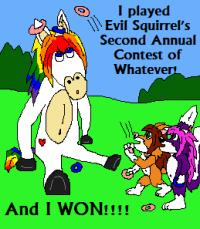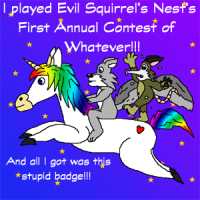Archive
The Changing Language
Languages change and evolve – we all know that. What surprises me is the speed at which this can happen.
Take a look at this bit of Chaucer from the 14th century:
This frere bosteth that he knoweth helle,
And God it woot, that it is litel wonder;
Freres and feendes been but lyte asonder.
For, pardee, ye han ofte tyme herd telle
How that a frere ravyshed was to helle
In spirit ones by a visioun;
It’s vaguely understandable, but clearly not modern English – see here for a translation. To be honest, after 600 years I’m surprised it’s as close to today’s language as it is.
Then we have slang words. Some appear and stick around, some are less long-lived. Some are merely short-term fads. When I was at school, if we wanted to say something was great, we used the word “skill”.
“Did you see that football match last night? It was skill!”
That particular one has disappeared. We also completely reversed the word “help” – that lasted a few months. If someone asked you if they could “help” you, answering in the affirmative would lead to your school bag being unzipped, turned upside down and your belongings being turfed out all over the playground.
These are short-term slang words attached to a particular group or region, and generally never make it to a dictionary.
I see three sources of language change today which may accelerate the change of language as a whole.
- New slang words and abbreviations which stick around and become an official part of the language. These can originate from text-speak, for example. I wonder how long it will be before “LOL” becomes official? Take “Fail”, usually seen in texts. The first time I saw this I was most confused. “Fail” is a verb, and by itself in a sentence is most likely the imperative, or command form. Someone is commanding me to fail! I eventually realised it’s a new meaning, when someone has themselves failed at something, or something else has failed. I particularly like “Epic Fail”. I generally get on my high horse and refuse to use such terms, but I like this so much, I may start using it. I even love an American phrase, which many hate – “My bad.” This is a great way to accept responsibility for something without even a hint of an apology. It’s very flippant, so be careful when you use it. When explaining a mistake to your boss or trying to avoid a prison sentence, for example, a proper apology is probably a better way to go.
- Technology. Abbreviations which have become proper nouns, for instance “LASER”, or new words to describe new things, like “internet”. Of course, new things have always been invented which needed to be named, but there seems to be so much of this happening these days!
- New words, or existing words whose meanings have changed slightly due to the distribution of English across the world. For example, words such as “elevator” (lift), “sidewalk” (pavement) or “mall” (shopping centre). Although I believe this last word originated in England as a road with market stalls along it (such as Pall Mall in London). The inventive Americans popped a roof over the whole thing and the modern shopping centre was born!
These are my thoughts – a physicist turned computer programmer who really knows nothing about language. I’d love to hear different points of view, a rebuttal or counter argument of my off-the-top-of-the-head “theory”! I’m sure there’s tons of stuff on the internet about this, but research early Sunday morning? I don’t think so.
To apostrophe or not to apostrophe
I don’t usually write on the use of the English language. This is mainly because I’m worried that I’ll make exactly the same mistake in my post that I’m complaining about. Now, that would be ironic.
However, I walked into a major supermarket on Monday (October 31st – Halloween) and was confronted by the following sign:
“In the interests of security, please remove any Halloween mask’s.”
Note the apostrophe. Now, why is that there? How about:
“In the interests of the English language, please get someone who paid attention at school to write your signs.”
“Masks” is a normal plural noun. It doesn’t need an apostrophe, but this is one of the most common mistakes, probably second only to the “its/it’s” confusion, which is almost understandable since it doesn’t follow the rules.
I was tempted to point it out, but knowing my luck I’d be talking to the person who wrote the sign and they’d relieve me of my trolley, put my picture on the “banned from this store” wall and politely ask me to go away.
The “plural noun apostrophe” debacle even has a special name – it’s often called the “butcher’s apostrophe” or “greengrocer’s apostrophe”. This is due to the number of signs one might see on the high street offering “Three apple’s for a pound” and so on. I don’t necessarily blame the schools – we’re taught this stuff – but practice counts and I don’t think people read enough.
And while I’m on a rant, the Christmas decorations in the shop were up. In October! How can we view Christmas as a “special time” if it lasts for months? I can’t wait for the Boxing Day sales so I can get my Easter eggs in. Humph.
So, in the spirit of a very early Christmas and apostrophe hell,
“Merry Christma’s everyone! I hope you get lots’ of present’s!”






